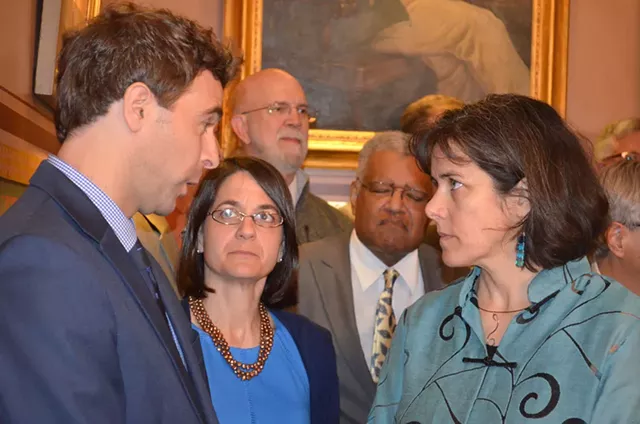
- Alicia Freese
- Senate President Pro Tempore Tim Ashe and House Speaker Mitzi Johnson
The November 6 elections gave Democrats and Progressives a supermajority in the Vermont House[1] to go with their continued dominance of the Senate. That's a significant shift in the power balance with Republican Gov. Phil Scott. But it doesn't mean the beginning of a liberal golden age with bill after bill flying past a helpless chief executive. If anything, Democratic leaders are throwing cold water on the expectations of their supporters.
"The superficial view is that we'll try everything," said House Speaker Mitzi Johnson (D-South Hero). "But overriding a veto is appropriately difficult."
Especially when you only have two votes to spare. The new legislature will include 95 Democrats, 43 Republicans, seven Progressives and five independents. When Dems and Progs stand together, their combined 102 votes will clear the two-thirds threshold in the 150-member House to override Scott.
"It's a fractious supermajority," acknowledged Rep. Robin Chesnut-Tangerman (P-Middletown Springs), leader of the House Progressive caucus, which is often one of those fractious elements.
"You don't want to bring an override to the floor unless you're sure you will win," said former state representative Tim Jerman, a member of the House Democratic leadership in 2013 and 2014, when the party last enjoyed a supermajority. "It's incumbent on leadership to attempt to pass bills that the governor can sign."

